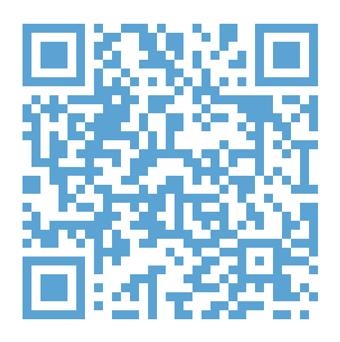Kindergartners from Carolina Community Academy, a partnership between UNC-Chapel Hill and Person County Schools, visited Ackland Art Museum in March. The UNC School of Education leads a cross-campus coalition of UNC units to provide the highest quality education and wraparound services for the students, their families, and the community.

THE UNIVERSITY OF NORTH CAROLINA AT CHAPEL HILL SPRING 2023 SCHOOL OF EDUCATION 21 No. SCHOOL OF EDUCATION U.S. NEWS & WORLD REPORT RANKED
Education CAROLINA
Fellow Tar Heels,
There is simply nothing like springtime in Chapel Hill. The dogwoods and azaleas bloom, the foliage returns to Davie Poplar, and Polk Place bustles. In May, we celebrate our graduates poised to become professionals who lead in classrooms, schools, districts, the academy, and a variety of organizations and fields. You know all of this, and I can assure you this spring is no di erent.
Yet, this spring has also delivered new energy to the UNC School of Education, and I am excited for you to read on in this edition of Carolina Education.
On the cover, we again feature Carolina Community Academy. Last fall, we shared a photo from the ribbon-cutting ceremony for our innovative K-2 school in Roxboro, N.C. What began as a promising partnership with Person County Schools has grown into a powerful collaborative e ort that spans the UNC-Chapel Hill campus. Our Carolina Community Academy kindergartners have visited campus six times this year for enriching field trip experiences with our campus partners. I would be remiss if I did not mention the academic success these students have achieved. Under the leadership of inaugural principal Daniel Watson (’18 M.S.A.), student success has outpaced previous years, and no child has been chronically absent. Even more campus partnerships that will benefit the students, their families, and Person County are in the works thanks to Amy Richardson (’06 A.B.Ed.), director of Carolina Community Academy and PK-12 partnerships. I cannot wait to share more about those benefits in the months ahead.
Within this issue, you also can read about an anonymous $3 million gift that launched the Fellows for Inclusive Excellence program, which invests in School of Education students and graduates who serve in rural, Title 1 schools — beginning in Person and Chatham Counties and in Carolina Community Academy. The program also provides unique professional development for assistant principals in those schools.
Rural counties like Person County are exactly where this School of Education should be, fulfilling our mission to serve North Carolina students, educators, and schools. The work done with Carolina Community Academy has opened new doors to expand our service. We recently signed a letter of intent with Person County Schools and Piedmont Community College to create a teacher pipeline, helping Person County’s students who aspire to become teachers realize that aspiration.
In this edition, you will see even more evidence of a busy and rewarding spring semester: You will meet students from the first graduating class of our Human and Organizational Leadership program. You will read about Anthony James, Ed.D., our inaugural director of diversity, equity, inclusion, and belonging. You will also read a brief mention of the School’s rise to No. 21 — our highest ranking in two decades — in the most recent U.S. News & World Report rankings.
Good work is happening at the UNC School of Education, and I know you are part of good work happening in classrooms, schools, districts, and communities. Together, we Propel the World.
All my best,
Fouad Abd-El-Khalick Dean and Alumni Distinguished Professor

James joins School to lead DEIB e orts

Anthony James, Ed.D., joined the School in January as the inaugural director of diversity, equity, inclusion, and belonging (DEIB). He also leads DEIB e orts at the UNC School of Information and Library Science.

James will help both schools realize their vision of inclusive excellence — organizations where talented people from diverse backgrounds do their best work. Already he is initiating sustainable e orts to expand diversity, bolster belonging, and promote the highest standards for inclusive excellence.
“I want to make sure people feel they have a place, whether they’re a student or faculty member or sta member because everyone wants to feel like they belong somewhere,” said James, who previously served as director of minority education and outreach at the College of Charleston’s School of Education.
This new role expands upon work led by faculty member Dana Gri in, Ph.D., who served as dean’s fellow for diversity, equity, and inclusion from July 2020 until James’s arrival.
Read a Q&A with James at ed.unc.edu/james-qa.
School ranked No. 21 by U.S. News & World Report

The School advanced to No. 21 in the latest U.S. News & World Report rankings, its highest ranking in two decades. The ranking marks the fourth consecutive year the School has been included in the top 25 among the nation’s schools and colleges of education.
Among public universities, the UNC School of Education now ranks No. 13.
Watson (’18 M.S.A.) named principal of Carolina Community Academy
“‘No one cares how much you know until they know how much you care.’ I’ve heard that a million times, and it’s been attributed to a ton of people. But it’s true. If we don’t build every relationship — with students, families, teachers, bus drivers, cafeteria workers — where people know that you genuinely care about them, everything else is moot.”
That’s the approach alumnus Daniel Watson said he brings to work every day as an educator. The Person County native, who worked in the Alamance-Burlington School System for a decade, became principal of Carolina Community Academy in January. Carolina Community Academy is an innovative school for K-2 students at North Elementary in Roxboro, N.C., and a partnership between UNC-Chapel Hill and Person County Schools.
Can VR help prevent suicide attempts in young people?
Faculty member Marisa Marraccini, Ph.D., received a £225,000 fellowship award — from MQ: Transforming Mental Health, an international mental health research charity based in London, and the American Foundation for Suicide Prevention — to expand her work to develop and test virtual reality (VR) interventions in the treatment of adolescents hospitalized for suicidal thoughts, especially ones from groups at greater risk. Globally, suicide is the fourth leading cause of death among 15- to 29-year-olds. In the U.S., it is the third leading cause of death for young people, behind accidents and homicide. Some groups are at a higher risk of suicidal thoughts than others, particularly LGBTQ+ youths, and risk for suicidal thoughts has increased for people who experience discrimination such as ethnic minorities.

A $3 million investment in educators and rural North Carolina’s schools and students
A transformational gift to the UNC School of Education will create a unique fellowship program that will enable a multi-faceted approach to ensure highly e ective educators serve students in rural, high-needs North Carolina communities.
With a $3 million commitment over four years, the Fellows for Inclusive Excellence program will remove barriers and support School of Education students and recent graduates to serve as teachers and school counselors in Title 1 schools, starting in Chatham and Person Counties and in Carolina Community Academy. The program will also provide engaging professional development for assistant principals in those schools who will build a robust, integrated experience for students, interns, and beginning educators. Ultimately, the program aims to create high-quality professional learning communities that provide K-12 students with enhanced opportunities to succeed and thrive.
“The evidence clearly shows that one of the School’s greatest strengths is the preparation of North Carolina’s most e ective educators. This investment enables us to build on this strength and extend our reach and impact to serve students in rural North Carolina communities,” said Fouad Abd-El-Khalick, dean and Alumni Distinguished Professor. “We believe this partnership between higher education, schools, and philanthropy will serve as a model for elevating high-needs schools and providing students with the opportunity to realize their full potential.”
The Fellows for Inclusive Excellence program was made possible by donors who wish to remain anonymous.
The School graduates many of North Carolina’s highly e ective educators. State-wide data had shown having a Carolina-trained teacher resulted in additional months of student learning achieved beyond what is expected on average in a given year. These data showed the largest gains were among students from underrepresented backgrounds and economically disadvantaged schools.
Data from the North Carolina Department of Public Instruction show that Carolina-prepared educators overwhelmingly work in urban areas. More than 600 School of Education graduates work in Wake County, 339 in schools in Orange County, and 323 in Durham County. Only 112 work in Chatham County and 20 in Person County.

In 2022-23, the School placed no student teachers or counseling interns in Siler City or Roxboro, despite being 32 and 37 miles away from Chapel Hill, respectively.
In partnership with and with additional commitments from Chatham County Schools and Person County Schools, the Fellows program aims to change that. The program will provide funding to support students in the Master of Arts in Teaching and School Counseling programs as they intern and learn from experienced teachers and counselors. Recent School of Education graduates will have the opportunity to work in those schools and receive professional development. Combined with district funding, those new professionals will receive graduated bonuses over a 3-year period if they continue working in their school.
Concurrently, selected assistant principals from partnering schools will work closely with educational leadership faculty to gain knowledge that best supports learning communities and addresses problems of practice.
“I do not know of another program like the Fellows for Inclusive Excellence,” Abd-El-Khalick said, “one that takes a comprehensive approach, beginning within an educator preparation program and engaging nearly every level of school personnel, to create the highest quality professional learning communities. The best education begins with investment in educators. This program exemplifies that.”

COMMITTED TO LEADING POSITIVE CHANGE
Launched in fall 2021, the Human and Organizational Leadership Development (HOLD) program graduated its first students in spring 2023.

Students enrolled in the multidisciplinary program take courses from across campus, in disciplines including education, business, communication, public policy, sociology, and more. To graduate, this year’s 21 HOLD students turning their tassels completed capstone projects, putting their knowledge and skills around leadership and
organizational change into practice at organizations that included an education nonprofit, Carolina Athletics, and a nonprofit aiding refugees.
“The HOLD program attracts students committed to change as individuals, in their communities, and in organizations that make local or global impact,” said Jemilia Davis, Ph.D., HOLD program director. “Their energy gives me hope that they will Propel the World to be a better place for every human.”
“To me, leadership is driven by passion, knowledge, and commitment to a team or organization. An e ective leader serves their people and consistently learns and evolves.”
Destiny Moore
Hometown: Harrisburg, N.C.
After graduating from the HOLD program, Destiny Moore aspires to work within higher education and help students realize their fullest potential.

Moore’s capstone site was the Carolina Leadership Academy in Student-Athlete Development at Carolina. For her project, Moore rebuilt the Carolina Leadership Summit, a leadership development camp taught by UNC varsity student-athletes for youth passionate about sports and hoping to grow as leaders. The summit will relaunch in 2024. During her time at the Carolina Leadership Academy,
Moore had the opportunity to take a hands-on leadership development approach, examining her personal leadership style and implementing it in a variety of situations. To Moore, the primary lessons of the HOLD program encourage students to remain authentic in their leadership journey and conscious of how they show up in a team.
“HOLD gave me an opportunity to go into my community and instill real change about things that I genuinely care about,” Moore said.
Human and Organizational Leadership Development program graduates first class
Rachell McDonald came to Carolina as a psychology major and quickly applied to the HOLD program when she found her passion at the intersection between human behavior and organizational development. To garner a sense of how leadership impacts human and organizational growth, she combined both majors and now strives to utilize what she has learned to foster her future career endeavors.
McDonald’s capstone site was a consulting and corporate training business, where she designed learning strategies, content, and deployment to impact business outcomes,
Rachell McDonald
Hometown: Louisburg, N.C.

specializing in sales-force development and continuing medical education. McDonald said while her psychology background helps her understand human behavior, her capstone project, along with HOLD’s curriculum, has cultivated her knowledge of behavior within organizations.

“The sense of community in the HOLD program is extremely unique,” McDonald said. “Community and friendships are built through the group-exercises, small class sizes, and openness to learn from one another.”
Romallus Dew
Hometown: Wilson, N.C.
At Carolina and in the HOLD program, Romallus Dew said he learned more about himself and has come to understand where he wants his future to lead him.
For his capstone project, Dew interned at a premium sta ing and recruiting organization that operates in over 10 states across the eastern U.S. Dew had the opportunity to lead thousands of employees to help break sales records at sporting and entertainment venues everywhere. His project addressed how entities can limit the e ects of administrative burnout by creating processes to automate and routinize back-end procedures that are traditionally operated by personnel.
Through those experiences, Dew said he is prepared to step into any corporate setting and become a change-maker or pursue entrepreneurial endeavors.

“HOLD has prepared me to do literally anything,” Dew said. “The multidisciplinary approach teaches us how to run an organization in at least five di erent ways, and the capstone experience and faculty support that we receive builds our confidence.”
Empowering the Leaders of Tomorrow
At the UNC School of Education, we empower educators and scholars to lead, to think creatively, to act with compassion, and to strive for equity and excellence for all. Equipped to succeed in their professions, our graduates emerge as leaders in their institutions and communities, and mindfully contribute toward continually improving and transforming them.
“ A leader is only a good leader if growth is a two-way street and totally communicated between the mentor and the mentee. Both the leader and the mentee must ‘own’ the growth and responsibilities, while being receptive to positive and critical feedback.”
“Leadership looks like being an advocate. It’s making sure your team is prepared to tackle anything and set up for success. A leader is someone that you never have to worry about if they’re listening because once you tell them what you need, the next contact you have comes with a solution.”
Thank you!
BECAUSE OF YOU, THE UNC SCHOOL OF EDUCATION RAISED

$26.8 million

T he Campaign for Carolina o cially ended in December 2022. Thanks to the support and commitments of alumni and donors, the School:
• Raised $4.9 million to support students now and into the future, including the creation of 25+ new scholarships, fellowships, and awards.
• Secured $3.9 million in funds to recognize, promote, and retain faculty.

• Garnered more than $17 million to help solve education’s most pressing and persistent challenges through high-potential research and innovative programming.
• Renovated key spaces in Peabody Hall, including the Tarver Entryway.
Educators: Register now for the 2023 World Anti-Bullying Forum held in Raleigh Oct. 25-27
The University of North Carolina at Chapel Hill and Dorothy Espelage, Ph.D., William C. Friday Distinguished Professor of Education, will host the World Anti-Bullying Forum Oct. 25-27, 2023, at the Raleigh Convention Center. Researchers, practitioners, educators, youth, and policymakers will convene for workshops, symposia, and sessions to advance knowledge and extend networks that seek to end bullying worldwide. Continuing education credits will be available for teachers, counselors, and social workers. Educators may attend at a discounted rate. To learn more and to register, visit worldantibullyingforum.com or scan the QR code below.





















